Ryzen Pro 7040 brings AMD’s cutting-edge tech to business laptops
AMD is stepping on the gas with its new Ryzen Pro 7040 processors for both business laptops and desktops, injecting Zen 4 CPU technology and RDNA 3 graphics architecture for increased performance. AI, too, will play a role, with some improvements for video calls to clients and partners.
The fine print, though, reveals a small penalty: While last year’s Ryzen Pro 6000 models were designed for both 35W to 45W laptops as well as thinner 15W to 30W and 10W to 25W thin-and-light laptops, AMD’s latest chips require more power. The high-end 8-core/16-thread Ryzen 9 Pro 7940HS consumes 35W to 54W of power, and there’s only a single second tier of chips for laptops that consume between 15W and 28W.
Still, AMD claims that its new Ryzen Pro 7040 processors can actually outperform an Apple Mac not on performance, but on battery life. (While AMD refers to its mobile family as the Ryzen 7000 Mobile series, the Ryzen 7040 series are the specific “Phoenix” chips designed for thin-and-light notebooks. The Pro 7040 series are the commercial offshoots for business notebooks.)
AMD unveiled six new Ryzen 9 Pro processors, and three new Ryzen Pro desktop chips. AMD’s Matthew Unangst, senior director of its commercial client and workstation business, also declined to confirm reports that AMD was extending the longevity of the AM5 desktop socket until 2026. Instead, he claimed that there had been no change to the company’s previous guidance and that it would last until at least 2025.
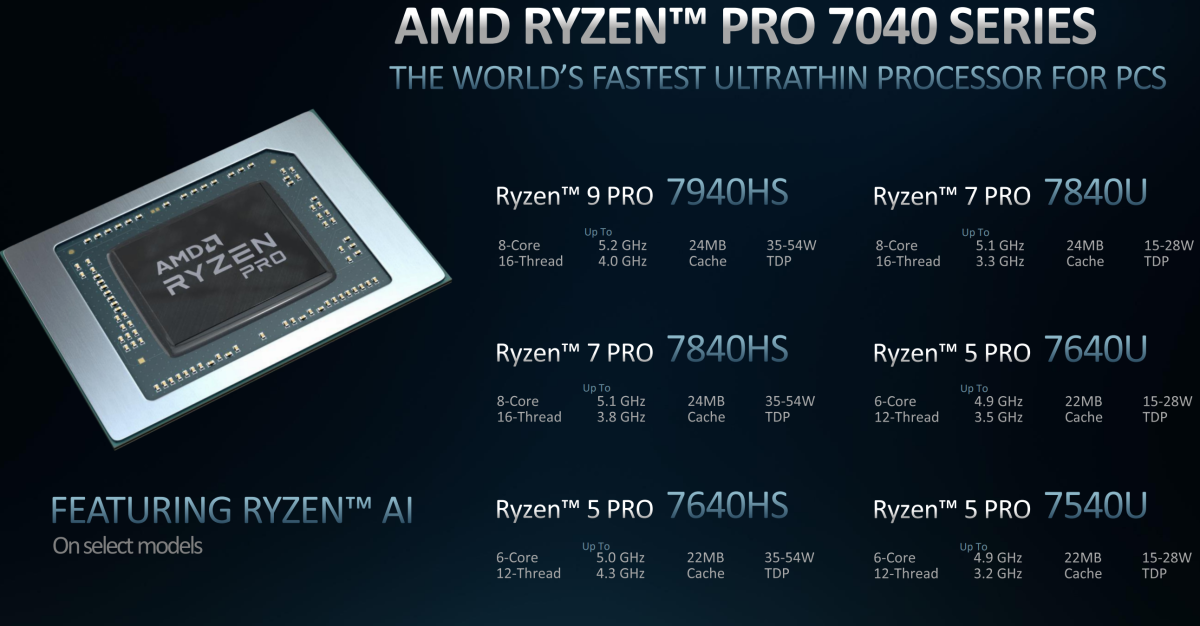
AMD
AMD’s new commercial Ryzen 7040 CPUs include the Ryzen 9 Pro 7940HS, the Ryzen 7 Pro 7840HS, the Ryzen 5 Pro 7640HS, plus the three U-series chips: the Ryzen 7 Pro 7840U, Ryzen 5 Pro 7640U, and the Ryzen 5 Pro 7540U. The fastest Ryzen 9 Pro 7940HS incudes 8 cores and 16 threads, and boosts from a base clock of 4.0GHz to 5.2GHz. The difference between the standard Ryzen 7040 Mobile chips and the new Ryzen Pro series are security — there’s an integrated Pluton core inside — and additional manageability features.
From a performance standpoint, AMD is claiming that its new Ryzen Pro chips will compete favorably with Intel’s 13th-generation mobile processors in terms of performance, even challenging one of Intel’s 13th-gen “P” performance processors with its own low-power “U” cores.
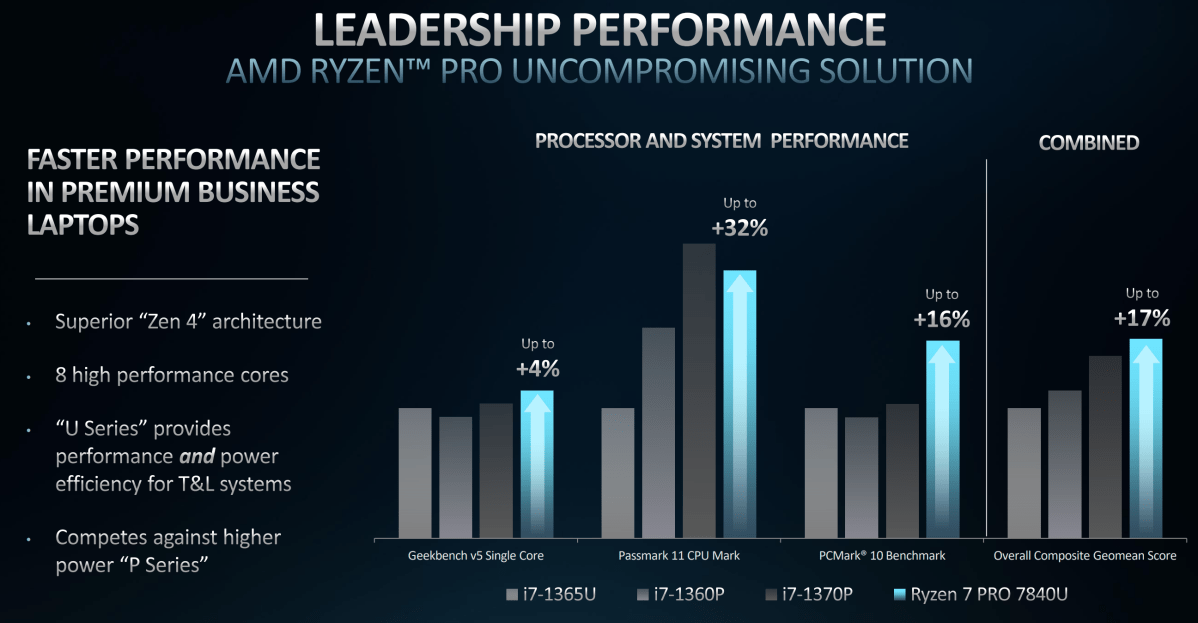
AMD
AMD also believes that the Ryzen Pro 7040 processors have several advantages in business computers. For one, AMD claims to have held tests with multi-hour Microsoft Teams calls. Its own laptops lasted the longest, even outlasting the Apple M2 Pro and handily outperforming it by 5 to 18 percent.
“Select models” of the Ryzen Pro 7040 series include an XDNA core, the Ryzen AI technology that AMD has shown off previously. For now, Ryzen AI and XDNA are limited to accelerating and enabling Windows Studio Effects, the technologies that debuted in Qualcomm Snapdragon-powered devices like the Surface Pro 9 (5G). Windows Studio Effects include face tracking and framing, background blur, plus some audio filtering. The hope, though, is that AMD will be at the forefront of helping whatever AI technologies emerge, whether it be machine vision or content creation.
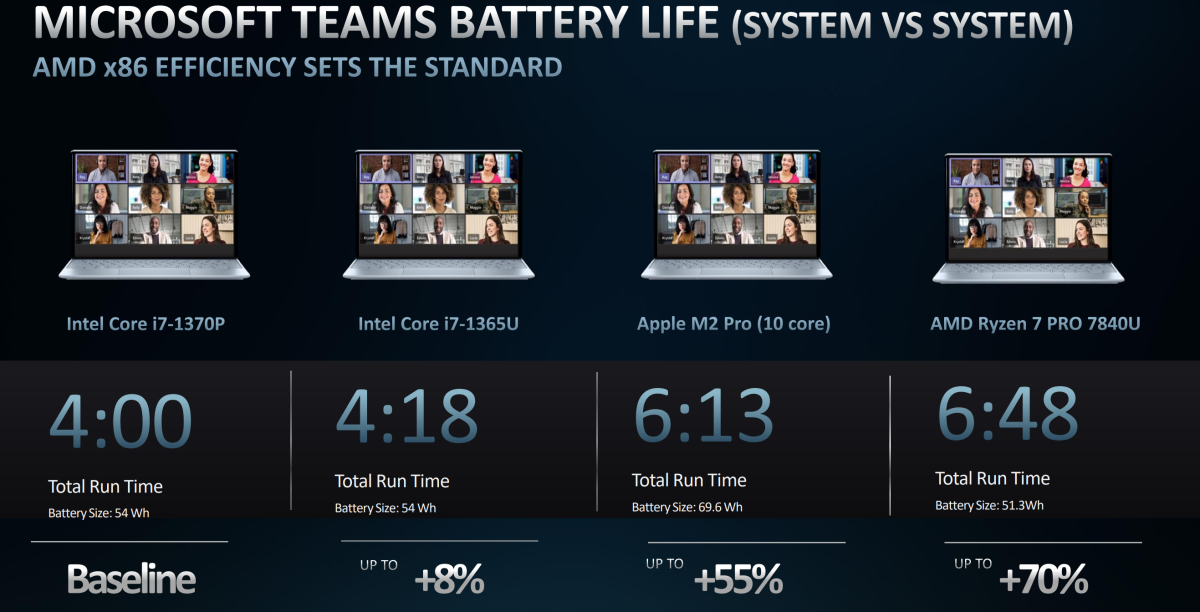
AMD
AMD debuted the Ryzen AI and its XDNA technology inside the Ryzen 7940HS, 7840HS, and 7640HS and the comparable U-series parts. AMD hasn’t confirmed the exact versions of the Pro series that will include XDNA cores, but the comparable Pro 7940HS, the Pro 7840U and Pro 7840HS, the Pro 7640U and Pro 7640HS are likely.
“We’re helping lead an industry and an ecosystem around the development of AI technologies,” Unangst said. Still, he added, AMD’s AI ” journey has a lot of unknowns.”
AMD said notebooks like the HP Elitebook 865/845/835 series, Lenovo ThinkPad Z13/Z16, and more would use AMD’s chips.
AMD adds desktop Ryzen Pro chips
AMD’s desktop version of the Ryzen Pro is all based around 65W parts. The three chips (the Ryzen 9 Pro 7945, the Ryzen 7 Pro 7745, and the Ryzen 5 Pro 7645, are all built on AMD’s 5nm process, with clock speeds up to 5.7GHz and core counts up to 12 cores and 24 threads.
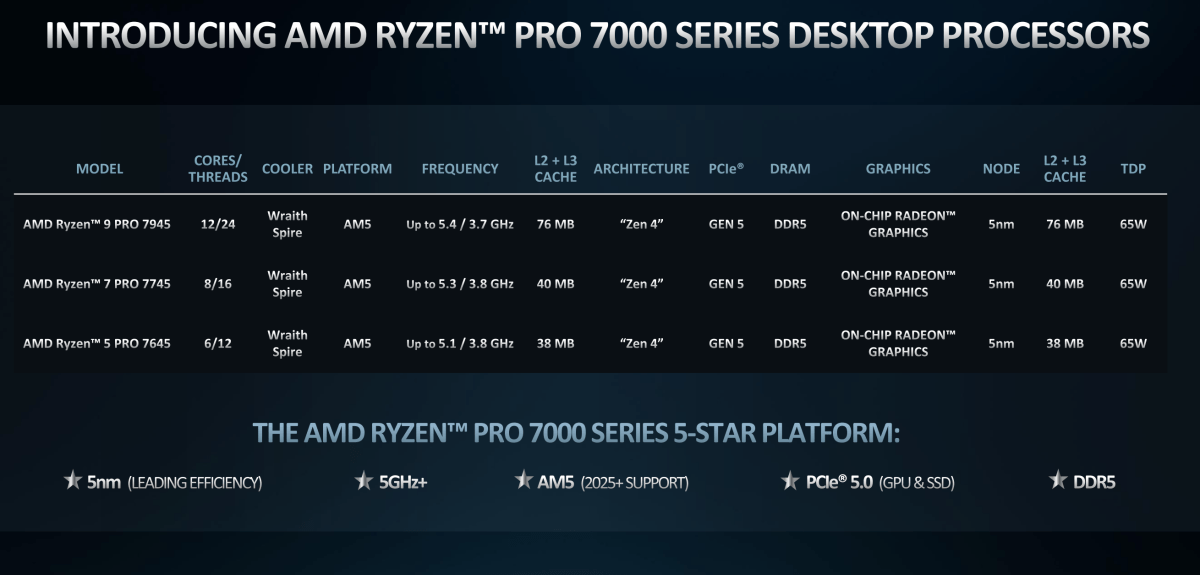
AMD
Unangst was asked about how long the AM5 socket would persist, especially as a version of his slide deck noted that it would be supported until “2025+”.
“We’re going to work with our partners and with our customers,” Unangst said. “But we feel very confident at this point that we can commit to at least 2025. And as we look at the situation we’ll communicate as we figure out what we’re going to do for 2026 and beyond.”
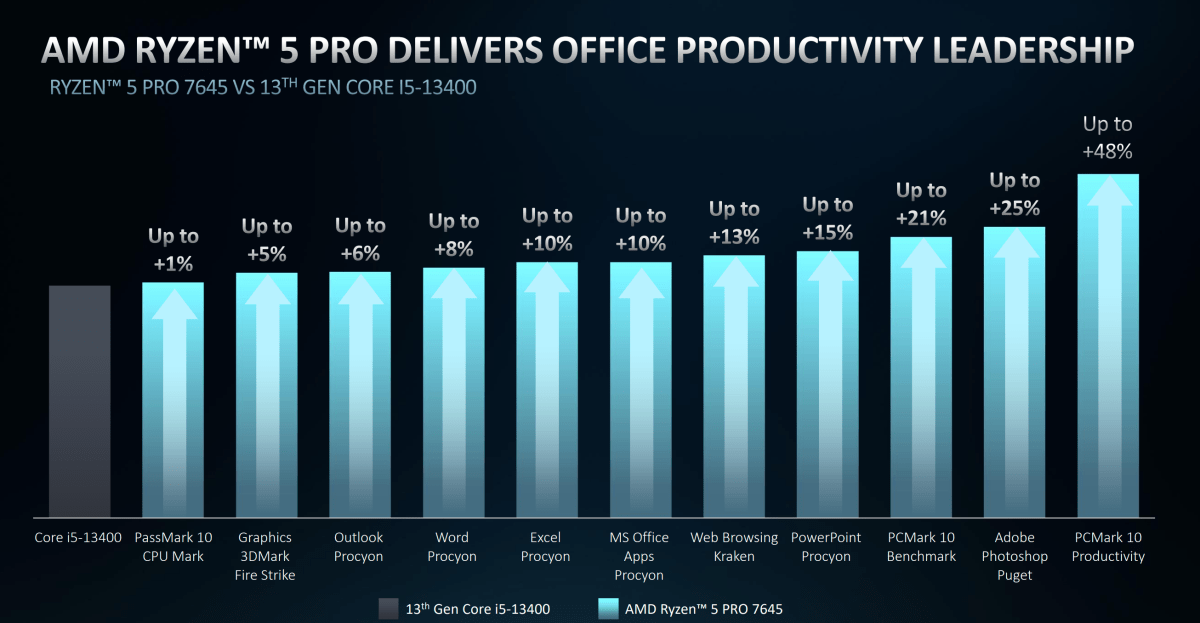
AMD
Unangst agreed with a spokesman that there had been “no change” in AMD’s plans.
For all the latest Technology News Click Here
For the latest news and updates, follow us on Google News.
